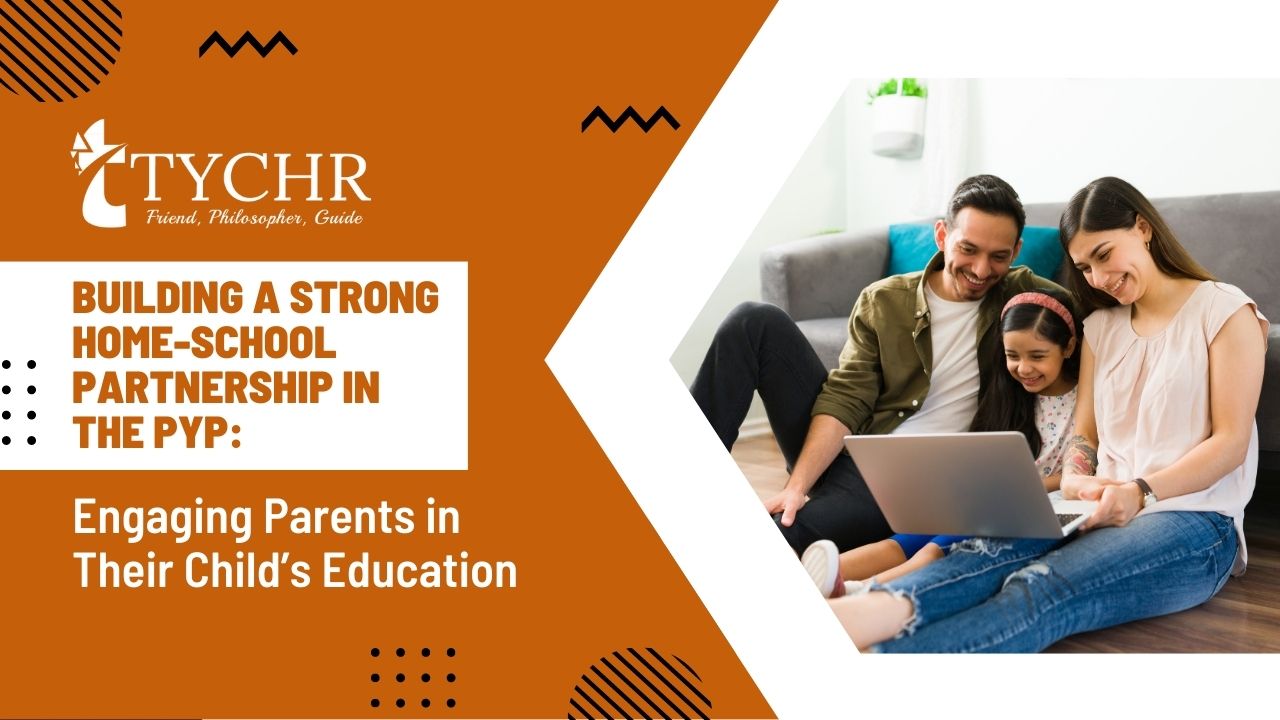Table of Contents
Within the Primary Years Programme (PYP), parents assume a pivotal and indispensable role in fostering their child’s innate curiosity, providing unwavering support in their quest for knowledge, and cultivating an environment that nurtures holistic growth. In this enlightening blog, we shall delve into a multitude of efficacious strategies aimed at cultivating a resilient and unyielding home-school partnership between the home and school spheres. By delving into this resourceful guide, both parents and students traversing the PYP terrain will gain invaluable insights, equipping them with the tools and understanding necessary to forge an unbreakable alliance between home and school, fostering an environment ripe for intellectual, emotional, and personal development.
Understanding the Benefits of a Home-School Partnership
Effective collaboration between parents and schools has numerous advantages. Research indicates that students whose parents are engaged in their education tend to perform better academically, exhibit improved behavior, and have higher self-esteem. Additionally, a strong home-school partnership promotes better communication, enhances the overall educational experience, and strengthens the support network available to students.
By actively involving parents in their child’s education, both parents and students can reap the following benefits:
Academic Success:
When parents are engaged in their child’s education, they can provide academic support, monitor progress, and reinforce learning at home. This involvement leads to improved academic performance and a deeper understanding of concepts.
Improved Behavior and Well-being:
A strong home-school partnership creates a positive and supportive environment for students. With parents actively involved, students are more likely to exhibit positive behavior, develop a sense of responsibility, and have higher self-esteem.
Enhanced Communication:
Regular communication between parents and teachers promotes a better understanding of each child’s needs, strengths, and challenges. It enables parents to stay informed about their child’s progress, curriculum updates, and school activities, fostering a sense of collaboration and shared responsibility.
Holistic Development:
When parents actively engage in their child’s education, they contribute to their social, emotional, and physical development. By understanding their child’s interests, aspirations, and challenges, parents can provide guidance and support that aligns with the child’s unique needs.
Creating Open Channels of Communication
Communication forms the foundation of any successful partnership. Schools can implement strategies such as regular newsletters, parent-teacher conferences, and online platforms to keep parents informed about their child’s progress, curriculum updates, and school activities. Similarly, parents should actively seek opportunities to communicate with teachers, sharing their insights and concerns. This open dialogue promotes a deeper understanding of each child’s needs and allows for collaborative problem-solving.
Examples of effective communication strategies include:
Regular Newsletters:
Schools can send out newsletters to parents on a regular basis, providing updates on curriculum topics, upcoming events, and student achievements. Newsletters also offer opportunities to highlight parent involvement opportunities, encouraging active participation.
Parent-Teacher Conferences:
Parent-teacher conferences provide dedicated time for parents and teachers to discuss the child’s academic progress, strengths, areas for improvement, and any concerns. These meetings facilitate open communication and allow parents to actively participate in their child’s educational journey.
Online Platforms and Portals:
Digital platforms can be utilized to share information and facilitate communication between parents and schools. Online portals can provide access to real-time updates on assignments, grades, and class announcements, ensuring parents stay informed about their child’s progress.
Parent Surveys and Feedback Mechanisms:
Schools can periodically seek feedback from parents through surveys or feedback mechanisms to gauge their satisfaction, identify areas of improvement, and understand parent perspectives. This feedback loop helps schools tailor their approach and ensures that parent voices are heard.
By establishing open channels of communication, parents and schools can work together to support students’ growth and address any challenges that may arise.
Also read: IB PYP Students Tackling Real-World Problems
Involving Parents in the Learning Process
When parents actively participate in their child’s learning journey, it reinforces the idea that education is a shared responsibility. Teachers can engage parents by providing resources, suggested activities, and ideas for extending learning beyond the classroom. This involvement could include assisting with homework, engaging in educational games or projects, and supporting reading initiatives. By participating in these activities, parents can gain insight into their child’s strengths, challenges, and areas of interest, enabling them to provide targeted support.
Examples of involving parents in the learning process include:
Providing Resources and Suggested Activities:
Teachers can recommend resources, such as books, websites, or educational apps, that align with the curriculum. They can also suggest activities that parents can do with their child to reinforce learning at home. For instance, if the class is studying plants, parents could be encouraged to take their child on a nature walk to observe different types of plants and discuss their characteristics.
Assisting with Homework:
Homework assignments provide an opportunity for parents to actively engage in their child’s learning. Teachers can provide clear instructions and guidelines for parents to assist their child with homework. By offering support and guidance, parents can reinforce learning, clarify concepts, and promote independent thinking.
Engaging in Educational Games or Projects:
Teachers can suggest educational games or projects that parents can engage in with their child. These activities provide opportunities for hands-on learning and can be enjoyable for both parents and students. By participating in these games or projects, parents can witness their child’s learning process firsthand and provide support where needed.
Supporting Reading Initiatives
Reading plays a crucial role in a child’s educational development. Teachers can involve parents in reading initiatives by recommending age-appropriate books, suggesting reading strategies, and providing discussion prompts. Parents can engage in regular reading sessions with their child, encouraging a love for reading and facilitating comprehension skills.
By involving parents in the learning process, students receive consistent support both at school and at home, which enhances their educational experience and fosters a love for learning.
Encouraging Parent Volunteering and School Involvement
Schools can actively encourage parent volunteering by offering various opportunities to contribute to the school community. Parents can assist with organizing events, supporting extracurricular activities, or sharing their expertise during classroom visits. Volunteering not only strengthens the bond between parents and the school but also allows parents to actively participate in the broader educational experience of their child and their peers.
Examples of encouraging parent volunteering and school involvement include:
Event Organization:
Home-school partnership can encourage parents to volunteer in organizing events such as fundraisers, cultural celebrations, or school fairs. By actively participating in event organization, parents become an integral part of the school community and contribute to creating a vibrant and engaging environment for students.
Support for Extracurricular Activities:
Parents can volunteer to support extracurricular activities by serving as coaches, mentors, or organizers. This involvement enhances the overall experience for students, provides additional support, and promotes a diverse range of interests and talents.
Classroom Visits and Guest Speakers:
Schools can invite parents to share their expertise or personal experiences with students by participating in classroom visits or serving as guest speakers. This involvement allows parents to contribute their unique knowledge and perspectives, enhancing the learning environment and providing students with real-world connections to their curriculum.
Parent Committees or Advisory Groups:
Schools can establish parent committees or advisory groups to involve parents in decision-making processes and school improvement initiatives. By actively involving parents in these committees, schools gain valuable input and perspectives, ensuring that the parent voice is represented in important school matters.
Parent-Teacher Association (PTA):
A Parent-Teacher Association serves as a platform for parent involvement and school engagement. PTAs can organize various activities, provide support for school initiatives, and act as a liaison between parents and the school administration. By actively participating in the PTA, parents contribute to shaping the school’s policies, fostering a positive school culture, and enhancing the overall educational experience.
When parents volunteer and actively engage in school activities, they become true partners in their child’s education. This involvement strengthens the connection between home and school, creates a sense of community, and enriches the educational experience for all students.
Establishing a robust and enduring home-school partnership stands as an imperative cornerstone, integral to the flourishing growth and triumphant accomplishments of students navigating the intricacies of the Primary Years Programme (PYP). By comprehending the myriad advantages woven into the fabric of a home-school partnership, cultivating transparent channels of communication, actively involving parents in the multifaceted learning journey, and fostering parent volunteering and active school engagement, both parents and schools weave a harmonious tapestry designed to bestow upon students an unparalleled educational experience. This propels students toward academic triumphs, fosters the embodiment of positive behavior, and nurtures the holistic development of their multifaceted identities.
This intertwined collaboration forges an all-encompassing ecosystem, wherein a supportive and nurturing milieu takes root, empowering students to flourish and embrace their boundless potential with unwavering determination. Guided by a shared purpose, parents and schools lay the bedrock, a sturdy foundation, from which an unwavering devotion to lifelong learning springs forth, arming students with the requisite skills and knowledge to soar beyond the confines of the PYP, navigating the vast expanse of future endeavors with confidence and unwavering tenacity.











